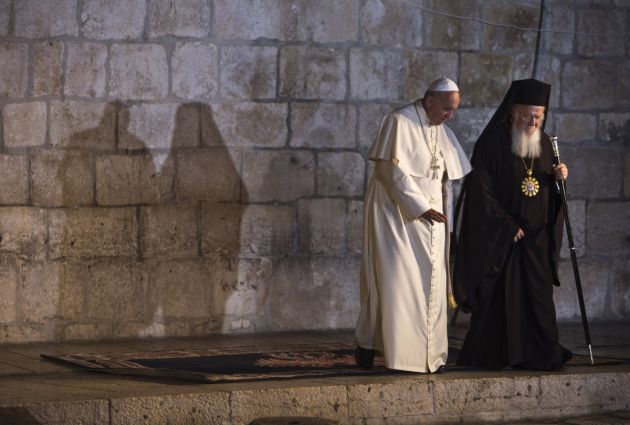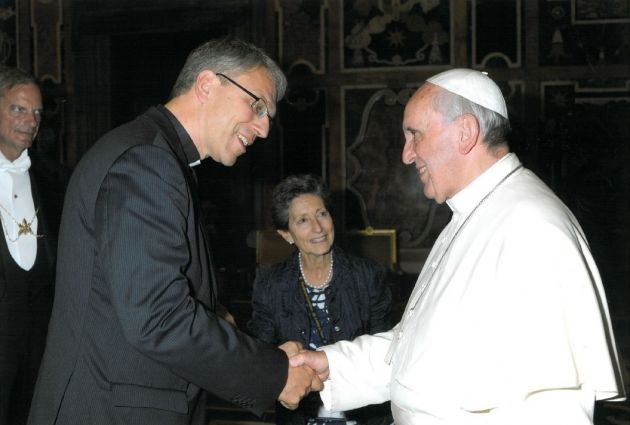World churches body head lauds meeting of Pope and Ecumenical Patriarch

The meeting of Pope Francis and Ecumenical Patriarch Bartholomew of Constantinople holds significance for global churches and the ecumenical movement beyond the Roman Catholic and Orthodox churches, says Rev. Olav Fykse Tveit, general secretary of the World Council of Churches.
Tveit in a statement Tuesday referred to the text of the Common Declaration issued by the two church leaders on May 25 when they met in Jerusalem.
"It is important that the Bishop of Rome [Pope Francis] and the Patriarch of Constantinople met to confirm this calling of the church toward unity just as their predecessors did 50 years ago," Tveit said.
"And that this is viewed as a necessary step toward communion in 'legitimate diversity.'"
The Roman Catholic schism with Eastern Orthodox Churches occured in 1054.
Sunday's meeting of Francis and Bartholomew in the Church of the Holy Sepulcher was the 50th anniversary of the meeting in 1964 between Pope Paul VI and Patriarch Athenagoras, the Patriarch of Constantinople, viewed by many as the spiritual leader of Orthodox Christians.
That historic meeting was the first rapprochement after 900 years of estrangement between the churches.
The WCC head cited the confirmation by Bartholomew and Francis of the call to church unity, the importance of their meeting in Jerusalem and the Holy Land and their shared conviction that all are on their way on a pilgrimage of justice and peace.

In their common declaration Pope Francis and Ecumenical Patriarch Bartholomew pledged to continue working toward unity between the Roman Catholic and Orthodox churches.
The WCC is a grouping of more than 500 million Christians that includes Anglican, Lutheran, Orthodox and Protestant churches.
The Roman Catholic Church is not a member of the WCC, although its serves on the council's faith and order commission and other bodies of the Geneva-based body.
""Our fraternal encounter today is a new and necessary step on the journey towards the unity to which only the Holy Spirit can lead us, that of communion in legitimate diversity," the document signed on Sunday said.
"The need for and understanding of respectful diversity within the Church was confirmed at our 10th Assembly in October last year, where both Orthodox and Roman Catholic leaders were present together with representatives of all the WCC member churches and beyond," Tveit said.
"To hear this directly from them adds to the inspiration we experienced at the assembly," said Tveit referring to a once every seven years meeting held by the WCC' highest governing body. It was held in Busan, South Korea.